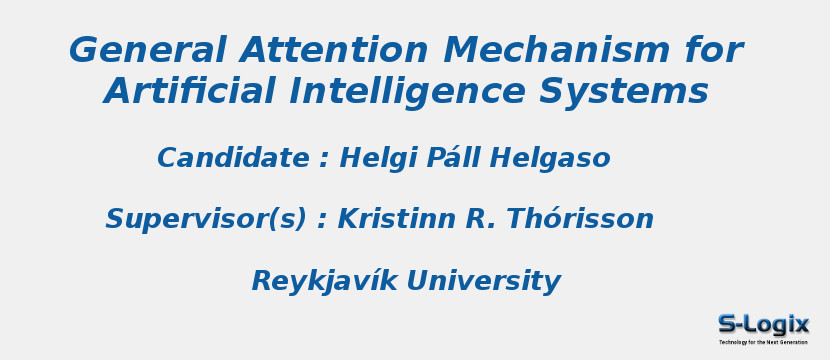Research Area: Machine Learning
In the domain of intelligent systems, the management of mental resources is typically called attention. Attention exists beca use all moderately complex environments and the real-world environments of everyday life in particular – are a source of vastly greater information than can be processed in re al-time by available cognitive resources of any known intelligence, human or otherwise. General-purpose artificial intelligence (AI) systems operating with limited resources under time-constraints in such environments must select carefully which information will be processed and which will be ignored.Even in the (rare) cases where sufficient resources may be available, attention could help make better use of them. All real-world tasks come with time limits, and managing these is a key part of the role of intelligence. Many AI researchers ignore this fact. As a result, the majority of existing AI architectures is incorrectly based on an (explicit or implicit) assumption of infinite or sufficient computational resources. Attention has not yet been recognized as a key cognitive process of AI systems and in particular not of artificial general intelligence systems.This dissertation argues for the absolute necessity of an attention mechanism for artificial general intelligence (AGI) architectures. We examine several issues related to attention and resource management, review prior work on these topics in cognitive psychology and AI, and present a design for a general attention mechanism for AGI systems. The proposed design – inspired by constructivist AI methodologies – aims at architectural and modal independence, and comprehensively addresses and integrates all principal factors associated with attention to date.
Name of the Researcher: Helgi Páll Helgaso
Name of the Supervisor(s): Kristinn R. Thórisson
Year of Completion: 2013
University: Reykjavík University
Thesis Link: Home Page Url
